|
A few days late getting round to posting this, but what the hey.
"Winter Neverland: An Anthology" is finally available for purchase! Huzzah! A collection of winter-themed stories by a group of writers with different styles and sensibilities. You like your stories sweet and sensitive? It's in here. What about funny? Yup, we have that. Dramatic and moving? We got you, fam. And if you prefer your wintry tales dark and disturbing, oh do we ever have that covered! Paperback version $9.99 E-book coming very soon!
1 Comment
I have no answers.
If I did, I'd be a lot more successful than I am. But just asking the questions can lead us to greater insight. (Or at least, that's what I tell myself.) But back up a little bit: exactly what am I asking here? See, the book I'm reading has a protagonist who is a cold-blooded murderer, turned professional assassin. One who shows no sign of remorse so far (though is certainly headed for a "redemptive" arc) and similarly no sign of personality other than a dedication to duty, to death. And I just can't get on board. I've always differed from some commentators in that I thought you didn't need to work so hard to win over an audience. I figured that the very fact that you have chosen to invest in this book means that you will by default side with the protagonist. This book is changing my viewpoint. So what is the key here? Must we rely on cliched "pet the dog" moments to make our heroes and heroines approachable? I hope not. My favorite novel is Vladimir Nabokov's "Lolita". Humbert Humbert is a pedophile and a child-molester, and yet we feel enough "sympathy" to go along with him as our lead (even as we despise everything he does and stands for). Why? Probably just because of the beauty and poetry of Nabokov's prose, attributed in-world to narrator Humbert Humbert. We are entranced by his way with words, his wit, his playfulness. We enjoy the experience of reading his point of view, without having to enjoy him as a person at all. Of course, the book also starts with something of a pre-apology from Humbert as he narrates the childhood experience that "trapped" him into liking young girls. Yet this is not the thing that binds us to him, as it is always clear that he is manipulating the reader, presenting this as an explanation for his actions (even while claiming contrition). No, this "explaining away" of his nature is not what draws in the audience; we are not fooled by Humbert Humbert's tactics. So apart from the sheer delight of reading English written so well, why do we enjoy the experience of seeing the world through his eyes? No idea. Sorry. Similarly, Van Veen in the same author's "Ada, or Ardor: A Family Chronicle" is a hateful slimeball, but the sheer cleverness of the prose makes me delight in the book even while despising the protagonist. So it's not about relatability. Not exactly. Not about having us feel as though we are necessarily like the character. But we do (perhaps) need to feel as though we understand the character's experience. Change media here: let's look at film. For the first 20-odd minutes of Alfred Hitchcock's Psycho, we are watching Janet Leigh's character Marion act as lead. Then, when she is killed (ostensibly by motel owner Mrs Bates) the lead role is taken by the killer['s son?] Norman, as he disposes of the body and tries to evade certain parties interested in the murder. Why on Earth would we switch our allegiance to this handsome but odd-and-slightly-creepy character who is getting rid of our heroine's corpse? Norman Bates hides the body in his car, then pushes it into the swamp. As it starts to sink, it catches--for just a moment, it looks as though the vehicle will not submerge. We are tense; our hearts catch in our throats.
Then: relief. It sinks. Phew!
Just that simple and relatable moment ("Oh no! The car won't sink!") transfers our sympathy to this strange young man instead. We instantly understand this tension and relate to it--feel it ourselves. Which immediately puts us on his side, whatever else we may think of the man. So what does this mean for our writing? To be honest, I'm not particularly sure. What I do know is that making sure my main character is all sunshine and rainbows and dog-petting is unnecessary. Giving him/her a situation to which the reader can instantly relate may just give the audience all the opportunity it needs to latch onto the protagonist after all.
If you wondered what I was up to besides writing "Cogs & Cognizance" (which is nearing the end of Act 2) then wonder no more!
A series of nine stories written by the six of us, all themed around winter and Christmas, interspersed with short poems as well.
It all came together rather quickly (as such things go) but I am very proud of what we achieved and cannot wait for you all to read it! More information will be coming as the release date is nearer (very soon!) but for now enjoy this slight tease. Happy reading, folks. 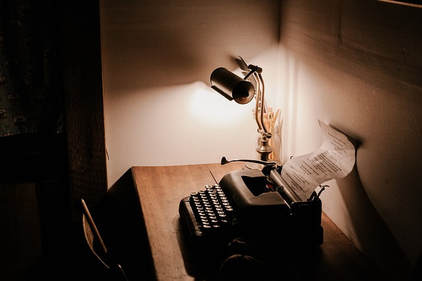
Sorry about my absence from the blogosphere of late.
It is, of course, because my Nanimo project (the first draft of "Cogs & Cognizance") has kept my typing fingers busy - and, therefore, away from this blog. But I also have been spending some of those precious words on a couple of short stories, and that's what I want to write to you all about today. Why, while I was anxiously dragging out a little over 30,000 words of my novel (I'm up over 40,000 now) did I have far less difficulty writing about 16,000 extra words on those two shorts? Words are words: why did some pour out of me with little effort while others acted like trees planted with roots that delve for miles and refuse to be pulled for love or money? I find short stories easier to write. I mean, of course I do: there's no intricate structure, no sub-plots, no side-quests - very few supporting characters, really. They're easy to plot out. But the actual act of writing them is also much more simple. The words just pour out and onto the page. Compare this with writing a novel, where each syllable must be aggravatingly excavated and wrestled onto the page with furious force. Why? Well, see, short stories are more disposable. I don't mean that their worth is inherently less (some shorts are among my favorite works of fiction I have ever read) but if they suck they can easily be tossed away without my feeling that I have wasted very much of my time. That story ended up being the worst piece of trash I have ever laid eyes upon? Never mind: DELETE! There's little risk involved in committing those words to "paper". (I rarely write on actual paper.) I can be free to mess up with little lasting consequence. With a novel, on the other hand - no matter how much I know that the rewriting process will take care of much that is wrong with the initial draft, and no matter how well I have outlined the story to ensure that the broad structure works - each piece of the tale still builds on the last. Each statement made by a character influences their behavior and that of the others who heard this pronouncement. 
Each act affects the next, and the next, and the one beyond that. It's like building a house, where every brick lays on top of a foundation of previous bricks. And what happens if one of those bricks should crumble?
This is what stops me from writing the way I do on a short. There is no sense of the ephemeral about these words; each one matters. Each sentence determines the fate of the entirety of the (maybe) 80,000 words to come. That weight presses down on every letter typed; each word feels the pressure of the mass of those yet to come. Imagine an empty box that once contained a washing machine. Big, but light. If I ask you to push it five feet along the floor you could do that with one finger. No problem! If I fill that same box with sand, however, and ask you to push it the exact same distance you shall have some trouble accomplishing the task. That's how I feel about writing. In a short story, the words have less riding on them, fewer expectation laid upon them. They can flow from my fingertips without hesitation. But when writing a novel, there is none of the same sense of unrestriction. None of the freedom from consequence that those same number of words enjoy in the shorter tale. Now so much rides on each character typed that they appear with hesitance and wariness, marching slowly out onto the page in a funereal procession. I wish I could type with the same ease for longer works that I can for shorter; my job would be so much easier that way. Alas, however, I am unable and therefore the process of writing that first draft remains a long and arduous one. ​At least I can take breaks to spit out a few short stories along the way. 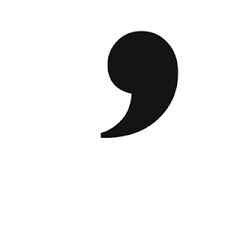
Today's quick blog post is about using the right kind of apostrophe for a word that begins with one.
If you're sitting there thinking: "Just what the bloody hell is he on about?" then this blog post is for you! This particular punctuation error invades indie publications like a plague - but is seen alarmingly often in professionally-published works as well. And it's the result of computers doing their job too well. You see, modern word processing software is very good at interpreting the writer's needs. When you're typing out inverted commas, it knows which set of curly quotes are needed at each end of the phrase. This goes for single-quote-marks as well as double.
The problem, of course, comes when you want to begin a word with an apostrophe. A word like:
Or maybe:
Modern software sees you type that apostrophe and says: "Oh! Here's the start of a new quotation! Better give that the curly treatment!"
And proceeds to render it thusly:
But, of course, it is not the start of a quote. It's an apostrophe, and should look like this:
Your word ends up looking like:
How to fix it? Dunno how the pros do it (with their fancy-schmancy ways) but I just type a letter at the beginning of the word and then delete it. This allows the software to recognize that the apostrophe is part of the word and should be drawn as such:
Then delete the "a".
Sure it's a grimy way of doing it, but in lieu of a better solution it's the one I use. And it sure looks better than having all your apostrophes turned the wrong way around! 
Two weeks since I've blogged. OOPS!
Still, what better way to start afresh than to write about... Starting afresh. Yes, as I begin a new novel (actually I started back on October 5th, but it's taken me this long to find the spare time to write about it!) I face that eternal question: Just how do I start this damn thing? Conventional wisdom has it that the first chapter should start as late as possible. Basically, don't bore the audience; start when the story itself actually begins. Which all sounds great... UNTIL ... you start writing and realize that none of what you're typing (or scribbling) means anything because it has no context. Without getting a sense of what your character's ordinary life is/has been, the reader cannot see what it means when it enters this new phase. So what? Start with describing her everyday life and transition as soon as you can into the actual plot? What, then, is the hook for the audience? What makes them want to read further into her story? It's a bit of a frustrating Catch-22, and always has been. So here is where I give you the answer: Beats me, guvnor. The temptation for a new book is to do that televisual procedural cold-open: An exciting bit of action, showing some one-off character dying, suffering, whatever. Showing the consequences of the plot without involving the protagonist quite yet. But this results in the reader not feeling attached to your actual main character when we finally cut to them. They just bonded with this cannon-fodder, and now they don't know what to expect. Is this next character similarly ill-fated? Or is this the one I'm expected to root for? Et cetera, et cetera... So the idea is to write something instantly involving and engaging - but not one which mires the lead character too much in the plot, because we need to establish her routine so we have some context in which to place the craziness she is pulled into. Simple, right? You got it figured out? Then drop me a line, would ya? I'm dying over here; the sooner you can explain it all to me, the better. 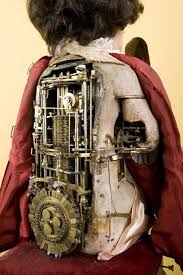
It's that time again. Everything is new once more, fresh, unexplored.
Terrifying. While the outline for Book 3 of The Sleepwar Saga marinates (it will be called "Shadow Cabinet", by the way) a new project begins. Something I plan to write a swift first draft of before getting back to my main series. "Cogs & Cognizance". A regency-era tale inspired by Jane Austen, but set in a clockpunk England, with themes taken as much from Philip K Dick as from Austen. And, as usual, I have no idea what I'm doing... I want to get this written (a quick initial draft that will let me see the broad outlines of what this story is) to take it from the forefront of my brain while I get back to The Sleepwar Saga. But I have difficulty writing without a solid outline. And I mean solid. I generally need to know exactly what will comprise each and every scene in the book before I begin writing. This time, however, it's not working out that way. Why? I'm having trouble getting a sense of the thing from my notes. Getting the (yes, you anticipated it:) sensibility. How does it work? Not just "what happens" but does the general form of the thing even function? My pride generally will not let me waste time and words typing out a terrible first draft. I have no interest in producing something so bad that it needs by and large tossing on the scrap heap. And yet, that may be what happens here. 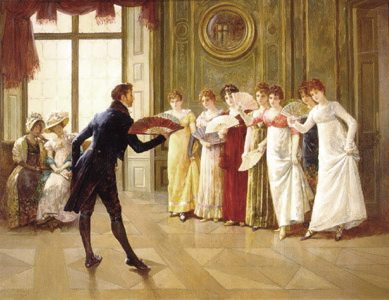
Because I can't tell. I honestly can't tell from this outline, these copious notes, what the story even feels like.
I want it to be a fun adventure with the two leads (Hattie and Mr Somersby) on the trail of a series of attacks targeting local manufacturing agencies - a field which both of them are invested in for hugely different reasons. I want to have a blast with the clockpunk sensibilities of this world, to explore the society these advances have shaped, and the moralities such things bring up. And yet, this is all structured around a Jane Austen-style heroine who is endeavoring to escape her mother's wishes for Hattie to marry into money before the family's dwindling fortune ultimately expires. About a fumbling romance between her and her mother's prospect for her - the dashing but arrogant Jack Somersby. There must be clashes over the arranged suit. There must be twists in how certain characters' moralities are perceived. Balls filled with dancing, sisters with opposing viewpoints, societal norms both accepted and undercut. And all this with a science-fiction adventure plot happening throughout. Can such a thing even function? Looking at the outline it seems just fine. But how much do those elements actually play against one another? Can either be truly successful while vying for attention from both the writer and the reader? In my opinion, the book "Pride & Prejudice & Zombies" utterly failed. What should have been a triumph was a disgusting and offensive disaster. But why? Because the two elements simply could not co-exist? Noooo, I don't think so. Or, I hope not. Largely it appeared to falter because Seth Grahame-Smith had no intention of honoring Jane Austen's style and character sensibilities throughout his additions to the text. Lizzie would swing from being a young woman forced to abide by society's strictures to someone who casually slaughters her opponent in a sparring match and eats the man's heart raw in front of his employer! It was sick, inconsistent, and appalling. 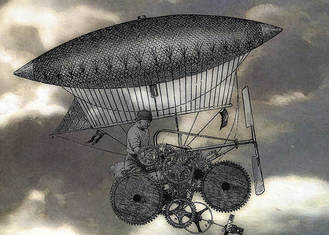
Along these lines, then, how much ought I to ape an Austen style? For my first draft, at least, I don't intend to. I shall remain somewhat old-fashioned and formal in my prose, and have characters inspired by the archetypes she would draw from, but will not attempt a strict pastiche.
I'm no Jane Austen, for one. For two, I am not at all certain how well a strictly regency-era tone to the text would marry with a rollicking science-fiction adventure story. In the rewrites, we will see. From beta readers I will likely hear more on this. Now? I shall stick with a style not unlike what I attempted in my Victorian pulp SF series "The Star Travels of Dr Jeremiah Fothering-Smythe". Yes, there's a century-odd difference in era. But my point is that I didn't quite go full-on pastiche there. I semi-adopted the tone of the era while embracing the fast-paced style of slightly more modern pulp such as my beloved Flash Gordon serials starring Buster Crabbe. In the same way, I hope to adopt a general Jane Austen-like manner while prejudicing myself toward a more light and modern grammar and flow of prose. A balancing act. That's what all of this is. And one I cannot entirely comprehend without getting out there and just... doing it. Or, you guys could talk me out of it. I could do with a little... persuasion. Yes, I finally updated the trailer to reflect the fact that "Red Cross" is now available to buy! Buy the books here: Happy reading!
Yes, folks, the day is finally here! It is Sep 25th, and Book 2 of The Sleepwar Saga is out in the wild. Buy your copy today! Also, as of this day of posting you can still buy Book 1 - "Straw Soldiers" - for a mere 99c or 99p! Just a few hours remaining...
Amazon US store or the Amazon UK store Happy reading everyone! Enjoy. For no other reason than my own amusement, I am going to sit here - right now! - and rack my brains trying to think of every pop culture reference in the text of "Red Cross" (out Sep 25th).
Some of these are blatant. Some subtle. Some no one but me will ever get. And that's the way I like it. So what references are there? Let's see if I can remember... Movies Star Wars The Terminator Paper Towns Die Hard Alien Big Saw The Revenant (kinda...) War Games Knute Rockne: All American Ghostbusters Harry Potter & The Philosopher's Stone (and yes, it's definitely the movie being referenced) High School Musical The Hudsucker Proxy The Room (accidentally) Books Paper Towns (again) Alice's Adventures in Wonderland Twilight Handbook For Mortals Nausea Sherlock Holmes (in general, not a specific story) To Kill A Mockingbird TV Shows The Walking Dead (referenced as The Ambling Dead) LOST Truth & Justice: Crime Scene Division (a made-up Law & Order/CSI series) Arrested Development Scooby-Doo Grey's Anatomy MacGyver Comics Super-Boy Games Outlast Vacate the Room Call to Action (an obvious "Call of Duty" ripoff) Heavy Rain Five Nights at Freddy's Music "Friday" - Rebecca Black "Loverman" - Charlie Parker "Now's the Time" - Charlie Parker Plays Julius Caesar Henry V Poems The Wasteland - T.S. Eliot The Second Coming - W.B. Yeats Memes Cash me ousside The floor is lava Hmmm... I'm sure there are more than that. I know I deleted a clumsy reference to the movie The Wizard of Oz. And a couple other tidbits besides. Off-hand, though, I'd say this list comprises at least the majority of the references. How many will you catch? |
J Douglas BurtonAuthor of "The Sleepwar Saga" YA fantasy series. Also Victorian pulp SF series "The Star Travels of Dr. Jeremiah Fothering-Smythe". Archives
August 2020
Categories |
Proudly powered by Weebly
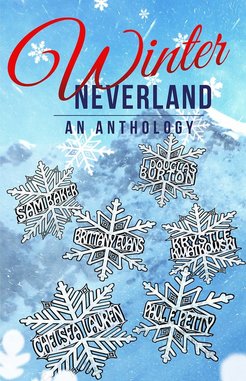
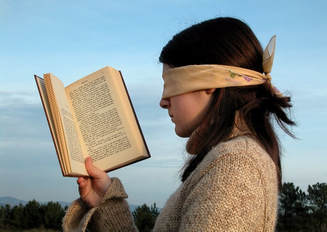
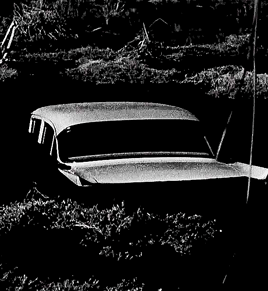
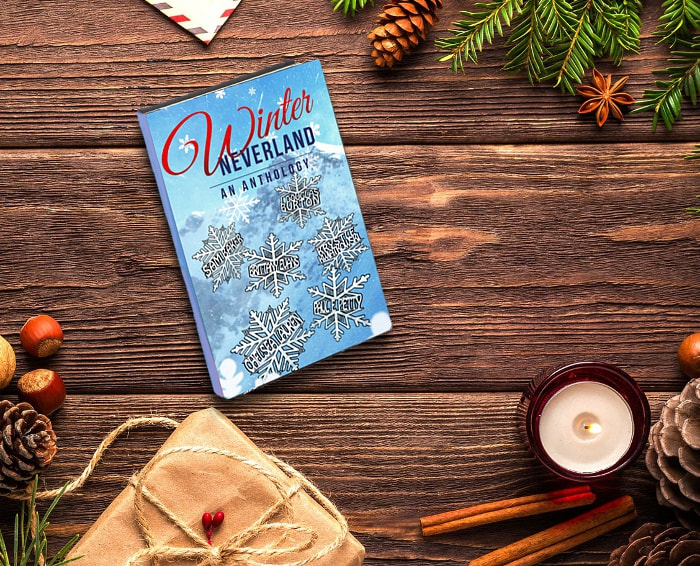







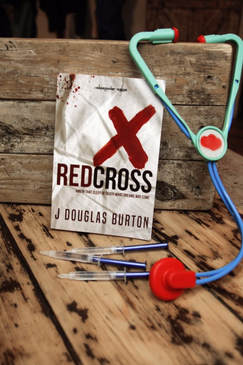
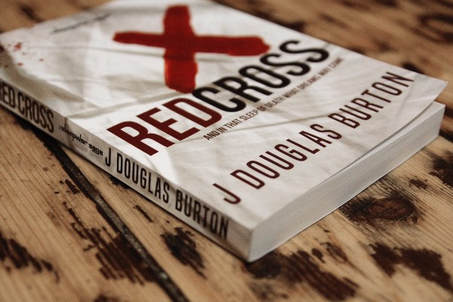
 RSS Feed
RSS Feed